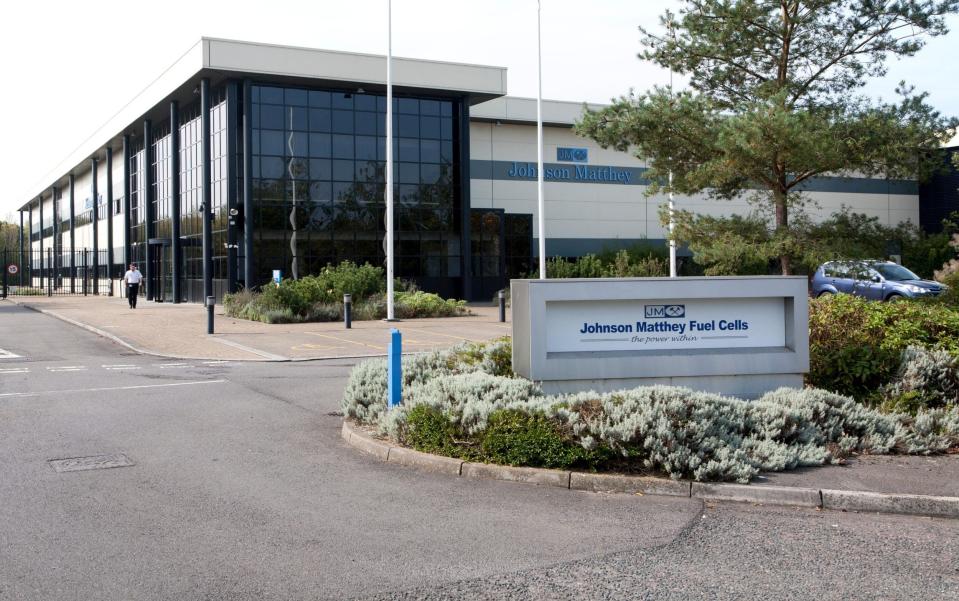FTSE 100 engineer to build £80m hydrogen factory in the UK to supply carmakers

FTSE 100 engineer Johnson Matthey is closing in on a deal to build a £80m hydrogen fuel cell gigafactory in the UK to help drive a boom in the gas being used to power cars, buses and trucks.
The 204-year-old company, best known for making catalytic converters for cars, is expected to announce a deal in the coming days.
The hydrogen gigafactory is expected to create hundreds of jobs and will be built at its existing site in Royston, Hertfordshire.
It will make components for fuel cells which burn hydrogen to generate electricity which will in turn power a motor. The gas burns to produce water.
The factory is being built with customer deals already in place after the company’s expensive, speculative push into battery technology backfired.
Johnson Matthey pulled out of battery development last year in order to focus on hydrogen, making use of its experience as a developer of catalytic converters.
It was in the process of a £200m investment that included a factory producing “enhanced lithium nickel oxide” – or eLNO, a material that can be used to make a crucial part of a battery. But it then concluded that it was too far behind its competitors to make the product a success.
The failure claimed the head of chief executive Robert MacLeod, who was replaced with Liam Condon.
From its new factory, the company hopes to sell £200m of the technology by the end of the 2025 financial year.
It will start off manufacturing 3GW of proton exchange membrane fuel cell components annually, a type geared towards hydrogen vehicles. It is thought to be geared towards heavy goods vehicles, but could also supply taxis and other vehicles where long distances and rapid refuelling are important.
Making these components in the UK means just under two thirds of fuel cell components will be made in the UK, which could help Britain become a dominant force in the technology.
Hydrogen is seen as a good replacement for methane in the UK’s gas system, although the network will need to be upgraded to accommodate it in high concentrations.
It could also be used in steelmaking, replacing coal, as well as being a substitute for diesel in trains, ships and the heaviest goods vehicles, where batteries may be too heavy.
Using electrolysers to split water molecules, the gas can be created from green energy from the sun and wind, cutting carbon usage.
Many UK buses already use the fuel, filling up when they return to base. But many more fuel stations will have to be built to make the fuel a solution for vehicles which travel long distances rather than returning to the same depot each evening.
Johnson Matthey declined to comment.

 Yahoo Finance
Yahoo Finance 